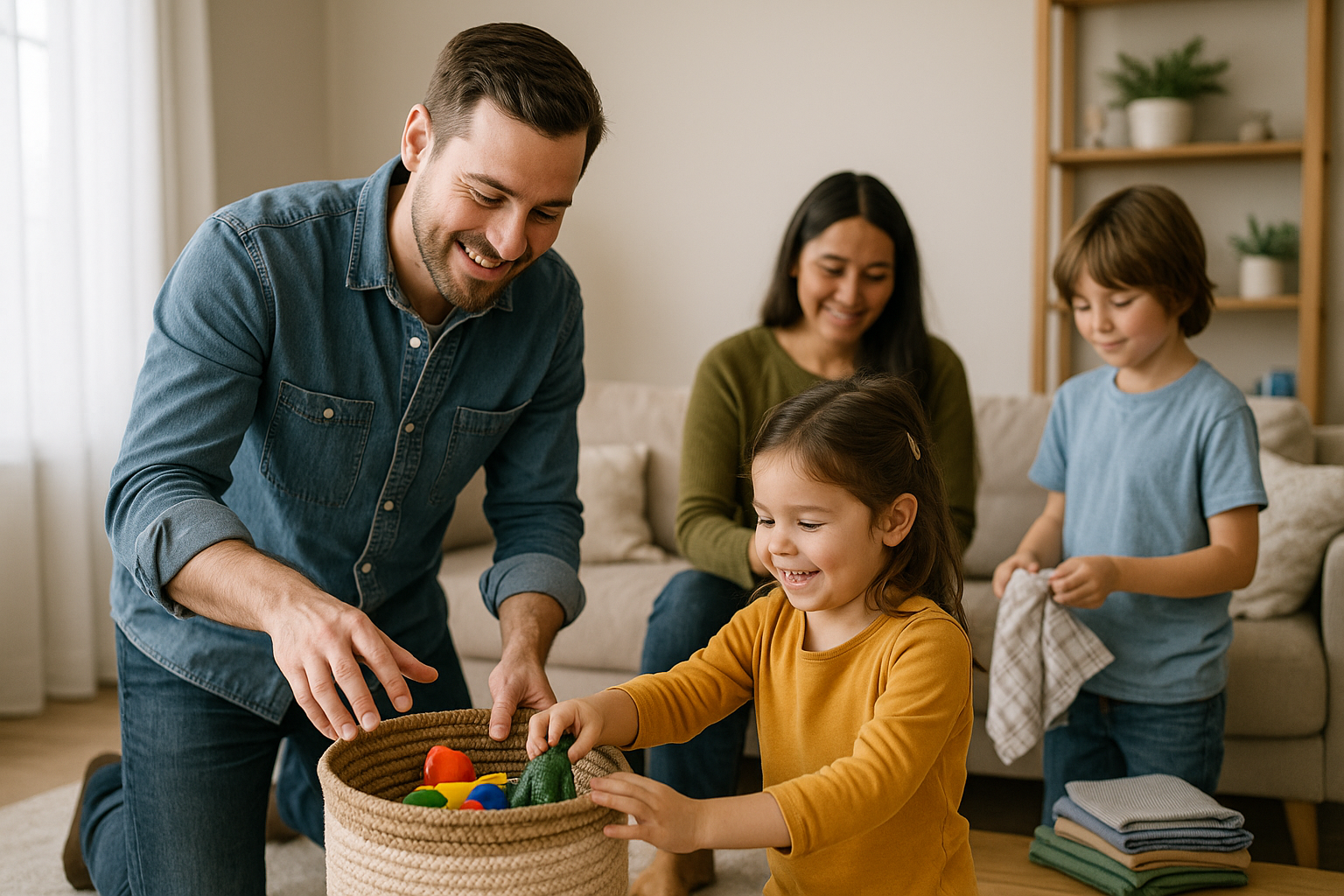Responsibility is not something that magically appears in adolescence or adulthood — it’s a habit built over time. By introducing it early, in age-appropriate and positive ways, you’re giving your child valuable tools to become more independent, organized, and confident.
In this article, you’ll discover how to gently and effectively help your child take responsibility for their actions, belongings, and choices from an early age.
Why Teach Responsibility Early?
When children are encouraged to take on small responsibilities early, they:
- Develop a sense of ownership and pride
- Learn cause and effect
- Build independence and life skills
- Gain confidence in their capabilities
- Understand that their actions have impact
Responsibility strengthens emotional maturity and prepares them for life beyond childhood.
1. Start with Small, Everyday Tasks
Big responsibilities begin with small, consistent habits. Even toddlers can help with simple routines that build a sense of contribution.
Age-appropriate tasks:
- Toddlers: Put toys in bins, throw trash away, help feed a pet
- Preschoolers: Set the table, dress themselves, water plants
- School-age kids: Pack their backpack, tidy their room, fold clothes
Small wins lead to big habits.
2. Be Patient and Consistent
Learning responsibility takes time and repetition. Your child won’t get it right every time — and that’s okay.
Tips:
- Offer help without taking over
- Use reminders, not lectures
- Praise effort more than perfection
The goal is growth, not immediate mastery.
3. Give Choices (With Consequences)
Letting children make decisions — and live with the outcome — is a powerful lesson in accountability.
Example:
- “You can choose to wear your coat or carry it. But if you feel cold later, you’ll need to put it on.”
This helps them understand cause and effect in a safe, supported environment.
4. Create Clear Routines
Routines help children take charge of daily tasks without being constantly reminded.
Build routines like:
- Morning checklist (get dressed, brush teeth, eat breakfast)
- After-school routine (snack, homework, free play)
- Bedtime steps (clean up, pajamas, story, sleep)
Visual charts can be a fun and helpful tool — especially for younger kids.
5. Involve Them in Family Tasks
When children contribute to the household, they feel more valued and responsible.
Try:
- Making chores part of the family culture, not a punishment
- Assigning one task per child each week
- Rotating responsibilities to keep things fair and engaging
Working together builds a sense of belonging and teamwork.
6. Avoid Doing Everything for Them
It’s often quicker and easier to do things yourself — but this can rob your child of the opportunity to learn.
Examples:
- Let them pack their own lunch (with guidance)
- Allow them to solve simple problems on their own
- Encourage them to clean up spills they made
Resist the urge to fix everything. Support, but don’t rescue.
7. Celebrate Responsibility
When your child follows through on a task, recognize it — even if it’s small.
Say:
- “I saw how you cleaned up your toys without being asked — that was really responsible.”
- “You remembered your water bottle for school today! Great job.”
This reinforces that responsibility is valued and appreciated.
8. Turn Mistakes Into Teaching Moments
Mistakes aren’t failures — they’re part of the learning process.
Instead of:
“I told you not to forget your lunch again!”
Try:
“Looks like you forgot your lunch today. What can you do next time to help you remember?”
This encourages problem-solving and growth.
Responsibility Grows with Support
Children aren’t born responsible — they become responsible through consistent practice, guidance, and encouragement. By starting young, offering opportunities, and showing trust, you’re giving your child one of the most important gifts for their future: the belief that they are capable and accountable.
Responsibility isn’t just a chore — it’s a path to independence and confidence.
